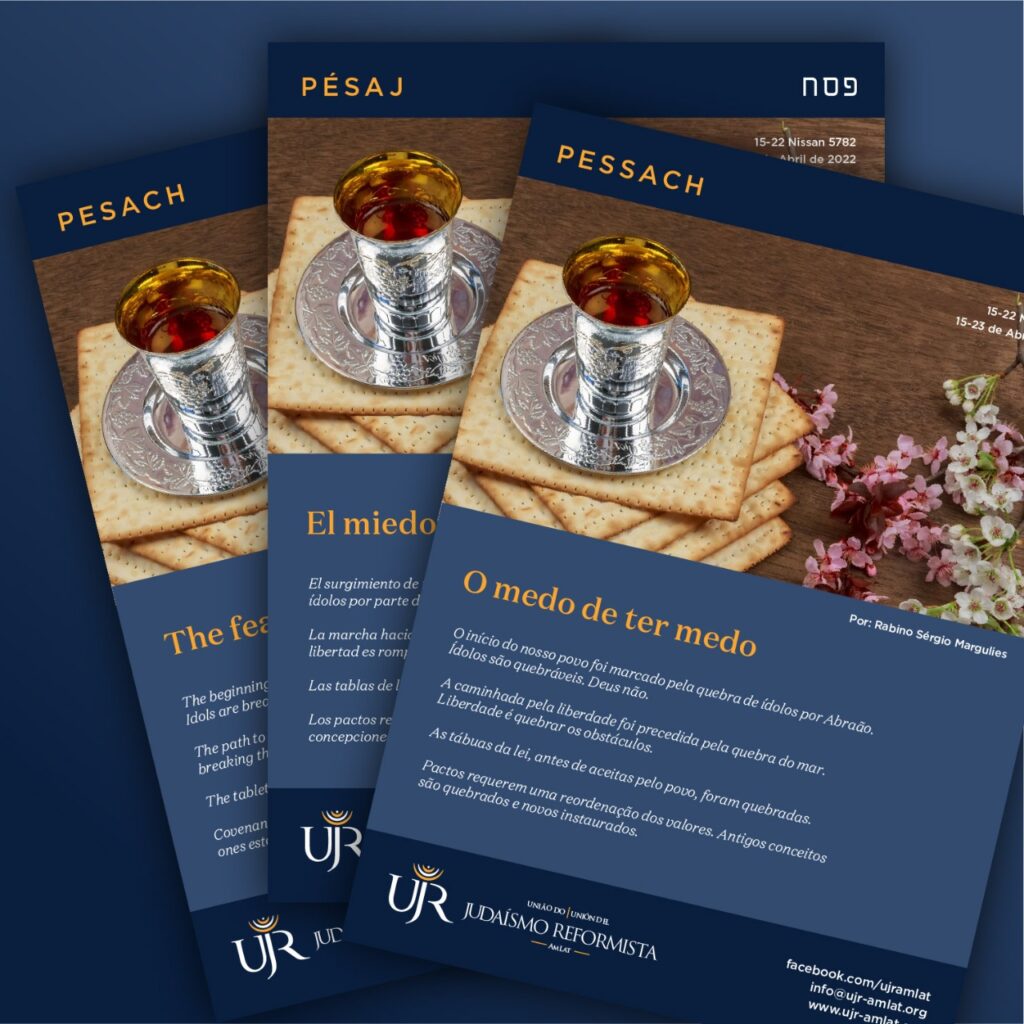The beginning of our people was marked by Abraham’s breaking of idols. Idols are breakable. God is not.
The path to freedom was preceded by the parting of the sea. Freedom is breaking the obstacles.
The tablets of the law, before being accepted by the people, were broken.
Covenants require a reordering of values. Old concepts are broken and new ones established.
Love is a covenant. When getting married, the groom breaks the glass. To love is also to know how to walk through the desert – the arid trails of life – and not let the bonds break.
Solidarity is a covenant. As Jews, responsible for each other, we break the matzah and hide it. Then we look for it. Those who are isolated, either by the misery of hunger, or the misery of loneliness, are rescued by our actions. The broken matzah is wrapped in a napkin. But we are not looking for the napkin, but for the matzah. We learn: to find the one who is gone requires looking beyond the surface.
Questioning – valued through the recitation of mah nishtanah – is also a break in the search for a narrowed vision. Question marks are breaks from the proclaimed immutable exclamation points that invite investigation and reflection.
The path of reflection is a break from the anxiety that demands instant solutions that serve as banners of ostentation. The break invites one to appreciate the depth of the problems so that their solutions do not evaporate to the flavor of immediate interests.
Dayenu is a break from the vices of constant complaining that erode appreciation. Empowered by the recognition of accomplishments, we are strengthened and driven to follow with more vigor.
The Pesach narrative has in the breaking of the sea one of its symbols. Like the sea, a new perspective opened up. The breaking of the sea was a response to the human attitude to courageously take risks and to continue balancing the desire to be free with the unknowns of an uncertain future.
The breaking gives fear, but without it there would be no adventure. Pesach is the recognition of fear in a world in which we are so often required to be unshakable. The breaking redeems our humanity and invites us to cross life more fully. The breaking restores our internal order. Breaking is order. We reorganize ourselves as human beings.
We break the inertia that cultivates pyramids – the unmeasured impositions that create slaves of a routine averse to transformation. We break the pyramids that petrify feeling and thinking. Feelings are the breaking down of emotions in the flowering of the soul, and thoughts are the breaking down of the irrigation of ideas so that we become whole beings.
We are afraid to break, after all we are human. If we are afraid of being afraid, let us not anesthetize ourselves, understanding that we join all those who millennially cross the sea of life that is opening for a journey of fulfillment.
Chag Sameach!
Rabbi Sérgio Margulies – ARI (Rio de Janeiro)
—





